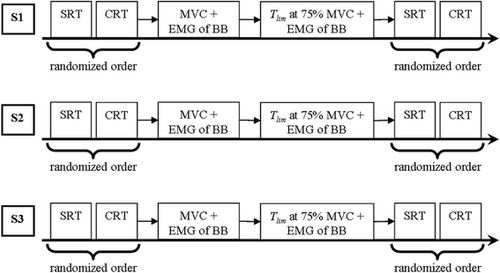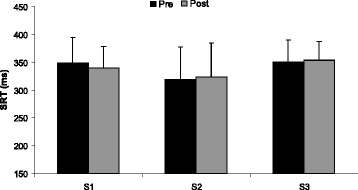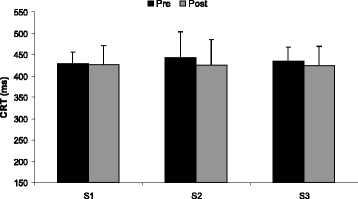Figures & data
Fig. 1 Experimental design. S1, S2 and S3: one week before Ramadan, the end of the first week of Ramadan, and the end of the last week of Ramadan, respectively; SRT: simple reaction time; CRT: choice reaction time; MVC: maximal voluntary isometric contraction of the elbow flexor; BB: biceps brachial muscle; T lim : isometric sub-maximal elbow flexion contraction until exhaustion

Table 1 Mean values (± SD) of daily dietary intake before Ramadan (S1), in the first week of Ramadan (S2), and in the fourth week of Ramadan (S3)
Table 2 Mean values (± SD) of the anthropometric characteristics, maximal voluntary isometric contraction (MVC), root mean square (RMS) of the EMG signal and neuromuscular efficiency of the biceps brachial muscle during MVC, and absolute endurance time at 75 % MVC (T lim ) of elbow flexion obtained from the three sessions: before Ramadan (S1), in the first week of Ramadan (S2), and in the fourth week of Ramadan (S3)
Table 3 Analysis of the relative changes in the values of the root mean square (RMS) and the mean power frequency (MPF) of the EMG signal of biceps brachial muscle across the isometric muscle endurance task tested before Ramadan (S1), in the first week of Ramadan (S2), and in the fourth week of Ramadan (S3)


